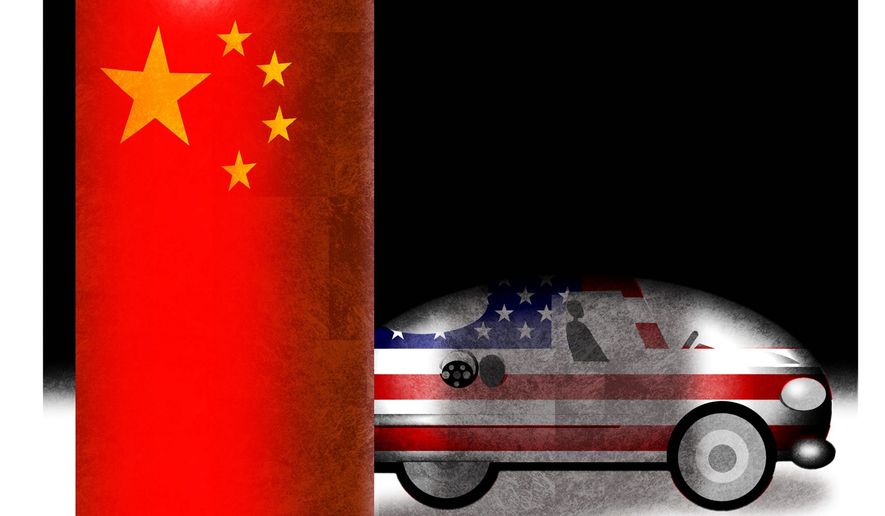OPINION:
The Biden administration has pegged much of its environmental agenda — and therefore much of its entire agenda — on electricity being generated almost exclusively by wind, solar, nuclear and other carbon dioxide-free sources by 2035 and on all automobiles sold in that year being entirely powered by electricity rather than gasoline. They also would like the entire American economy to have net-zero greenhouse gas emissions by 2050.
Leave aside for a moment whether these goals, designed to counteract what President Biden has described as an “existential threat,” are wise or meaningful.
What precludes the possibility of attaining those goals is that many of the materials essential to the batteries that would power all of the electric cars and help stabilize the electricity system currently originate in China or are owned by Chinese companies.
According to the American Energy Alliance, China controls about 80% of the rare earth minerals and the processed rare earths that are needed for electric vehicle batteries and solar panels in the United States and globally. At some point, almost all of that processing involves Xinjiang, the home of slave labor and concentration camps. Some of it includes child labor involving Chinese-owned companies in the Democratic Republic of the Congo.
In a larger sense, that’s only one part of the problem. There is similar forced labor going on in Guangdong province and almost certainly elsewhere. Hong Kong, and its remnant of a democracy movement, is hanging on by a thread. The Catholic Church in China is under constant attack, as is Falun Gong, as is Tibetan Buddhism. Taiwan is threatened at all times. Specious territorial claims are pressed in the South China Sea, and the Chinese Communist Party is in conflict with both the Philippines and Japan. Commercially, China routinely engages in predatory and destructive behavior.
It is no accident that the Quad — an alliance of nations (the United States, Australia, Japan, and India) specifically concerned about the threat posed by China — is now, without a doubt, our most important alliance. China is our most pressing adversary and the source of much mischief in the world.
To make their dreams of a nation powered by solar power and battery storage by 2035, the Biden team is going to have to ignore all of that — the forced labor, the concentration camps, the beatings, the political prisoners, the assaults on all religions, the regional bullying, the crushing of democracy in Hong Kong, the international hooliganism.
That’s a lot to ignore. I don’t think they should ignore it, nor do I think they will ignore it. Mr. Biden seems like a decent person. He can’t be willing to pretend that all of this is OK.
The bottom, irreducible line is that President Trump (and Matt Pottinger, his deputy at the National Security Council) changed the conversation with respect to China irrevocably. The only thing we are waiting for now is to discover what that means for everyone. In the energy and environmental space, it means that supply chains that originate in or transit China are not going to be acceptable for too much longer and certainly won’t be able to provide a pathway to a net-zero grid by 2035 or a net-zero economy by 2050.
If the Biden administration is really set on accomplishing any of its environmental agenda, it will need to find another way.
In a larger and more important sense, the administration and its successors are going to need a durable, sustainable approach to the problem of China, because, unlike climate change, the Chinese communists really do pose an existential threat.
• Michael McKenna, a columnist for The Washington Times, is the president of MWR Strategies. He was most recently a deputy assistant to President Trump and deputy director of the Office of Legislative Affairs at the White House.




Please read our comment policy before commenting.